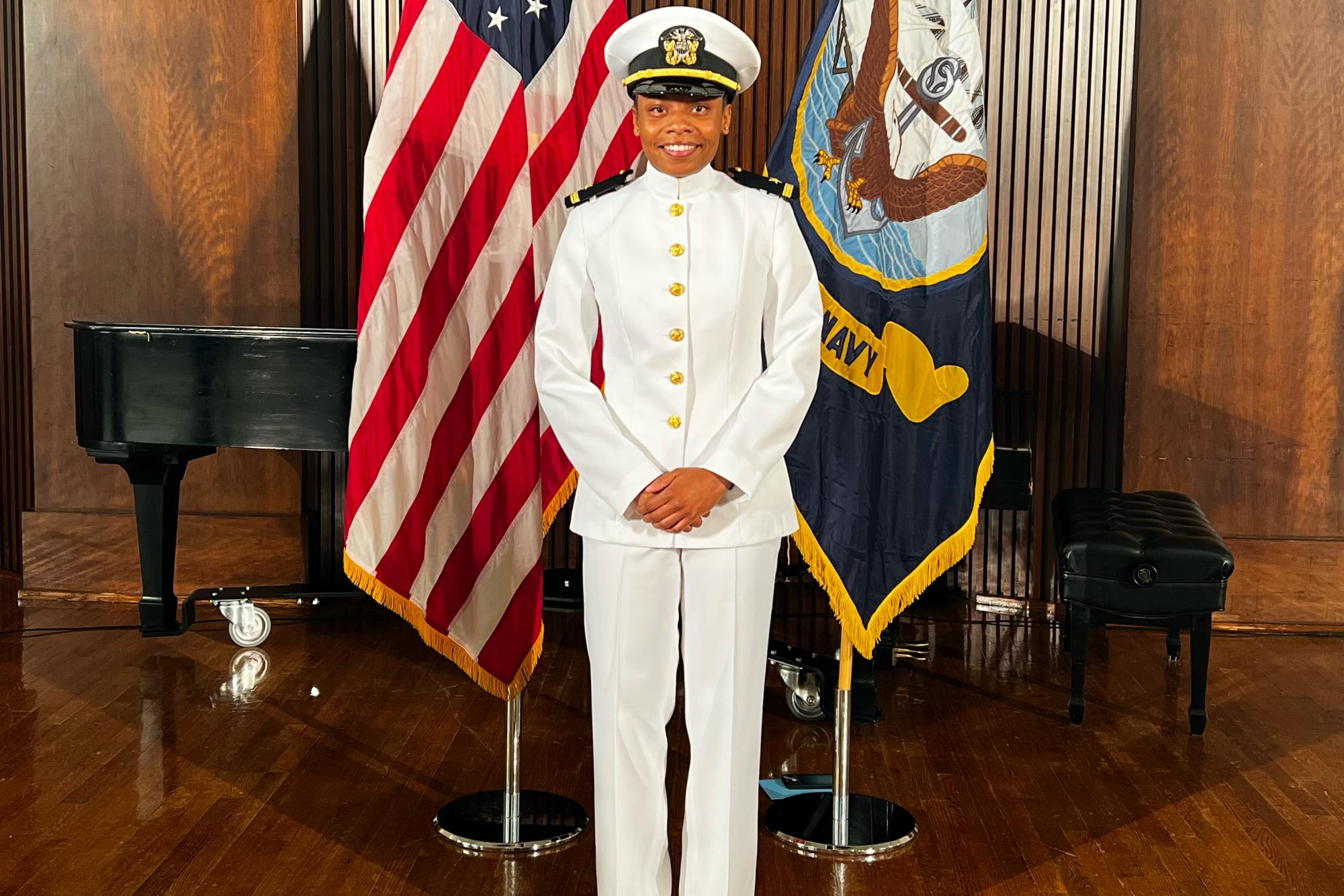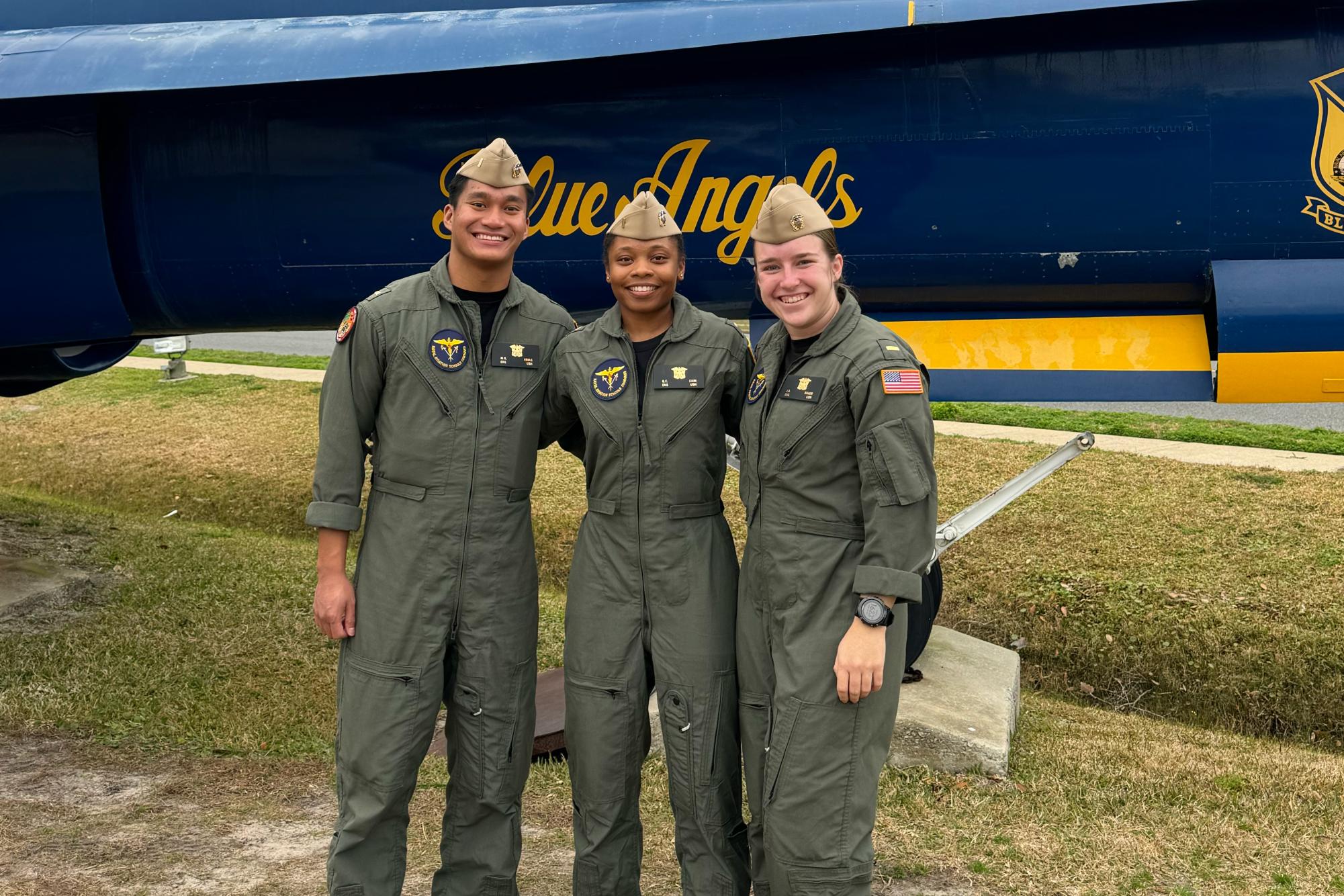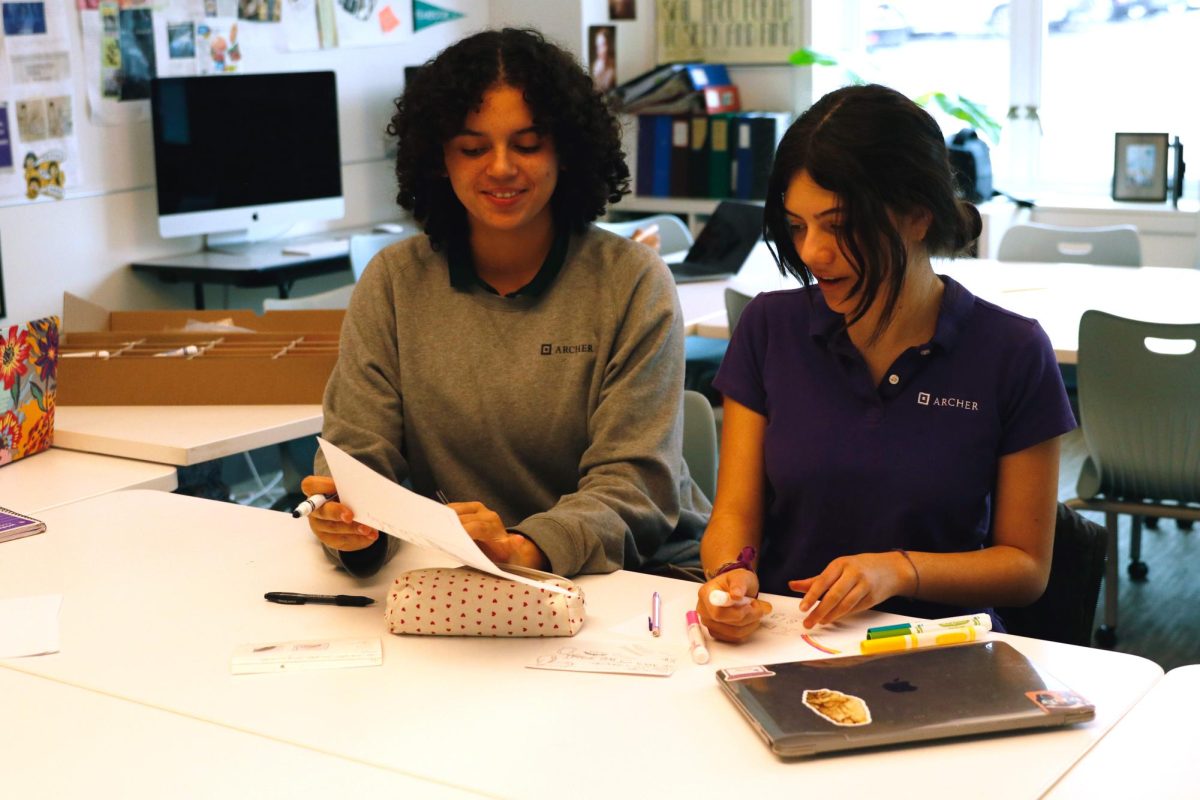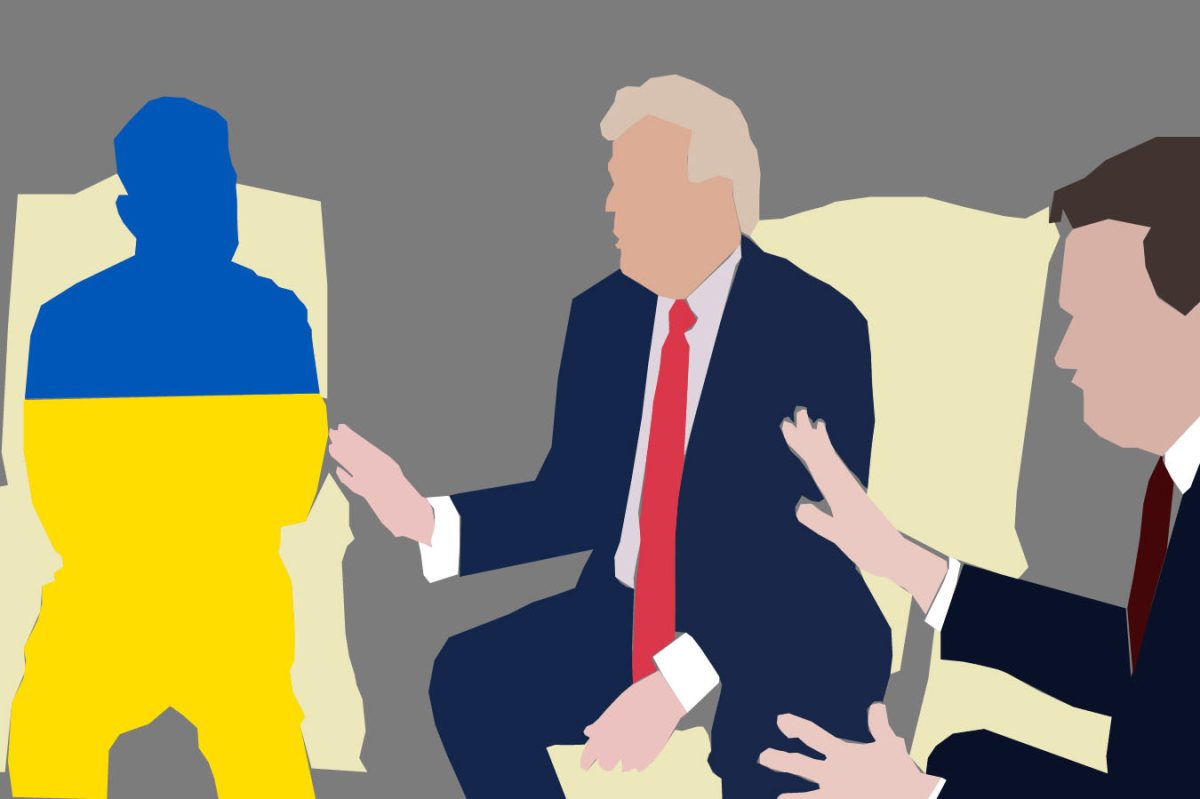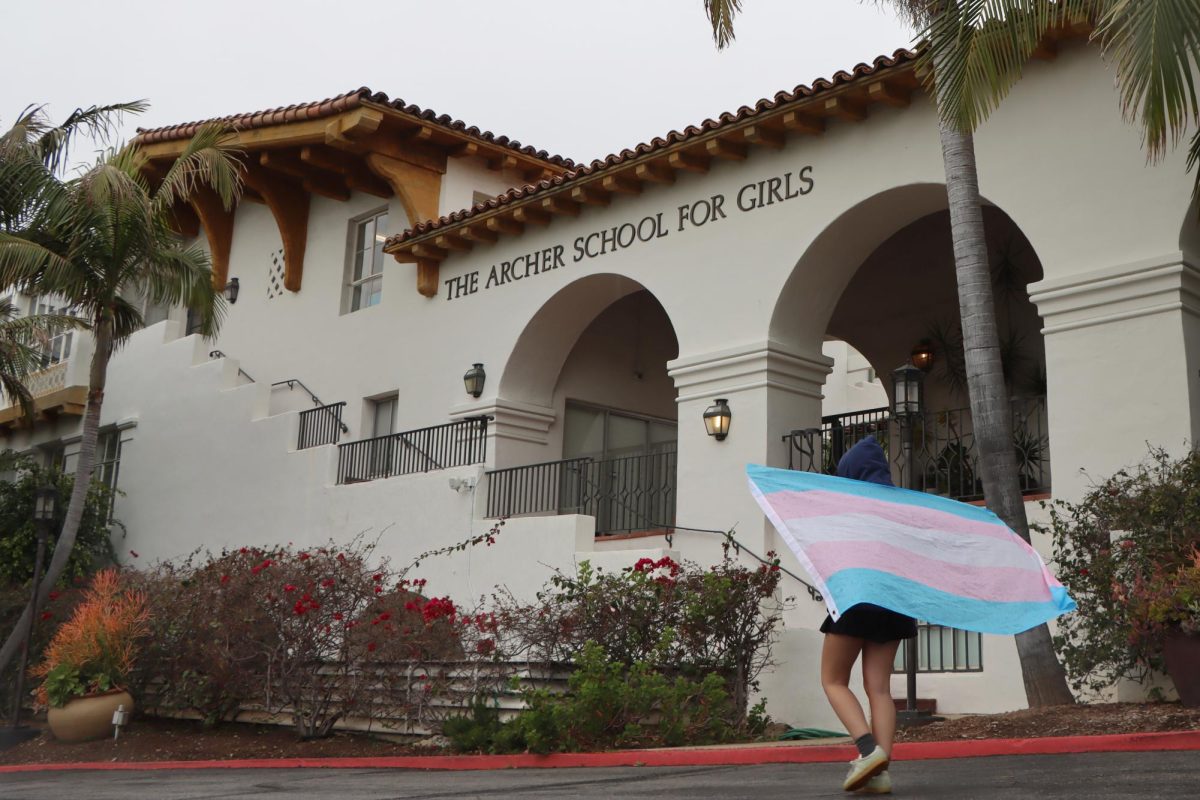With over 2.8 million people in the military — Army, Navy, Air Force, Marine Corps, Coast Guard and Space Force — only 27.4% are women. Among Naval aviators, 11.3% are women, and just 1.3% of Navy pilots are Black-identifying. Despite these imbalances, Gabrielle Cain is a Black, female Naval aviator.
Cain’s father was a Marine for 23 years, and he introduced her to the Reserve Officer Training Corps, where she received a scholarship to Spelman College. Cain said she was interested in the ROTC scholarship because she is passionate about leadership.
“It was really cool because not only was there getting a free college education and having a guaranteed career afterwards,” Cain said, “but I was also just always really interested in the idea of leadership, and you’re responsible for people and plans and ideas. So this just seemed like a perfect way to [help] me get to that point of where I needed.”
As a first-generation college graduate, she finished with a bachelor’s in biology and a master’s in neuroscience. Cain said she didn’t fully know what she was working towards until she was a sophomore in college and spent the summer with Naval officers and enlisted personnel. From then on, she said wanted to be a change-maker for women in the military.
“I heard a lot of issues in terms of lack of communication or understanding between the [enlisted and officers], driving me to actually want to be an example, number one, but also be a voice in the room, specifically for women in military,” Cain said. “Statistically speaking, women make up a large part of our enlisted force, but they don’t make up a large part of the officer. So a lot of times, what I heard is that there are issues that have come up particular to a woman, and they’re not handled correctly because they’re not a lot of people in the space making the decisions that are considering them.”
Cain said moving to Pensacola, Florida, and to the Navy has been an adjustment. In the military, 15.3% of all active-duty military personnel are Black. Although she is new to the military, she has experienced some discrepancies between herself and her white male counterparts. Cain said she has had instances of being treated differently, including others ignoring when she talks or not acknolwedging her.
“I’m definitely a unicorn out here, so there are times where I’ll be walking with my white male counterparts, and they’ll pass an enlisted, and they’ll immediately throw up the salute. They’ll say, ‘Good morning, sir,’ and don’t even acknowledge me,” Cain said. “In those scenarios, I’m like, ‘Huh, is it because I’m a woman, is because I’m a Black woman or maybe are they just too nervous?'”
Even though she has endured negative experiences with other officers, Cain said she has also had positive encounters.
“I also had critical experiences where people of color that are enlisted, other women that are enlisted come up to me, and they’ll render their respects. They’ll talk to me, [and] they’ll ask me questions,” Cain said. “I definitely think those interactions outweigh the bad ones and the break of communication. That’s probably one of the things that keeps me going and makes me excited to be here.”
While navigating how to be a supportive leader for her team of Naval aviators, Cain said her passion for change is propelling her forward.
“I realize I’m in a different position as a commissioned officer because I can make the decisions. I was saying, in high school, that was something that excited me,” Cain said. “I wanted to be a decision-maker. I wanted to be a leader. I want to be a mentor. I think my personality kind of sets me up to be intrigued in those things. So I think if anything, it ignited excitement in me to be in a position to help people because that’s really what it all comes down to.”
Cain said she manages being a strong leader while not indicating any sort of entitlement and nurturing healthy relationships with the enlistees. She said she is consistently working on balancing her ethical beliefs with representing the Department of Defense.
“The military is not my personality — military is not my persona. There are definitely certain things that are military operating procedures and ways of operating that aren’t a part of my ethical standards and my procedures of operating. I have my ways of expressing that. That’s completely separate from the DoD, but know that once I put on the uniform, I am representing the Naval aviation community,” Cain said. “I do recognize that our country is not perfect. Leadership is not perfect, nobody’s perfect. So while I do know that I have a job, I also know personally, I have a calling. I have something that I’m passionate about within social justice.”
Cain said she enjoys her job and being able to mentor and help people, and she is grateful for the opportunity to be mentored by inspiring people as well. For example, she said meeting the first Black woman to land on the moon from the Artemis II mission was an incredible highlight of her training.
“Just having the opportunity to bring other people in these spaces to be able to mentor people, to be able to say, ‘Hey, I see you, you’re not alone.’ So I do think in some ways, those goods outweigh any bad experience that I’ve had,” Cain said. “I also recognize that I’m very young in this, and I’m very new, and I am expecting more challenges to come. It’s my prayer that while I’m still on contract that the good continue to outweigh the bad.”



